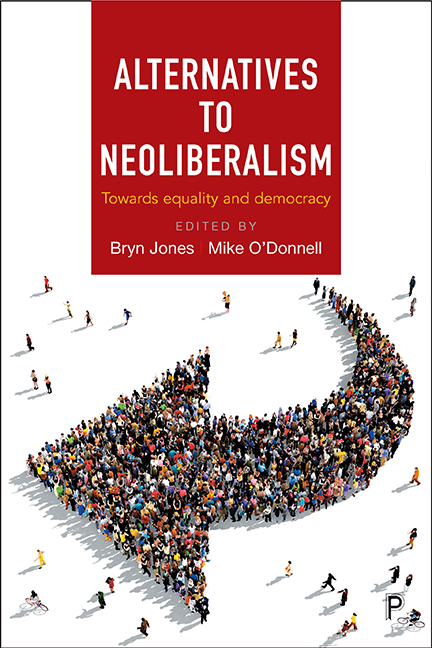Book contents
- Frontmatter
- Dedication
- Contents
- List of figures, tables and boxes
- List of abbreviations
- Notes on contributors
- Acknowledgements
- Foreword
- Editors’ preface
- Introduction: The open-market society and its opponents: an overview
- Part One Alternative paradigms and perspectives
- Part Two Reform within economic and governance restraints: pushing the boundaries
- Part Three Economic and political democracy: restoring the market-civil society balance
- Conclusion: A Brexit from neoliberalism?
- Index
four - The democratic deficit: institutional democracy
Published online by Cambridge University Press: 05 April 2022
- Frontmatter
- Dedication
- Contents
- List of figures, tables and boxes
- List of abbreviations
- Notes on contributors
- Acknowledgements
- Foreword
- Editors’ preface
- Introduction: The open-market society and its opponents: an overview
- Part One Alternative paradigms and perspectives
- Part Two Reform within economic and governance restraints: pushing the boundaries
- Part Three Economic and political democracy: restoring the market-civil society balance
- Conclusion: A Brexit from neoliberalism?
- Index
Summary
No mere declaration of rights can suffice: institutions are required to make rights effective. (Karl Polanyi, [1944] 2001, p 264)
This chapter argues that the power of the market and private interest should be better balanced by the democratic institutions representing the public good. Currently, in Britain the balance of power has shifted towards the former. However, as Eric Olin Wright (2010, p 6) proposes:
Social institutions can be designed in ways that eliminate forms of oppression that thwart human aspirations towards living fulfilling and meaningful lives. The central task of emancipatory politics is to create such institutions.
Yet writing in 2009 Gregor McLennan (2009, p 145) regrets that ‘[r]adical politics today has no viable institutional programme’. His observation remains apposite in 2016 and here I apply it to democratic institutional reform. In his 2015 campaign for Deputy Leader of the Labour Party, Tom Watson argued the case for ‘the empowering state’. I advocate ‘institutional democracy’ as a complement, but also as an antidote to state power: to avoid repeating the failings of previous state-centred politics. Equally, as well as in the formally political, institutional democracy is needed in other areas of institutional power/authority, including the economic and cultural.
The chapter makes two arguments. Firstly, it offers a brief narrative account from the late 18th century of a grudgingly conceded and currently troubled British democracy: illustrating that despite its formidable achievements, the post-war Labour Party largely failed to build on earlier aspirations to autonomy and democracy of social movements. During the inter-war and immediate post-war years socialist as well as communist parties adopted a centralist approach to reform; partly because of the perceived need to prioritise urgent issues of poverty and inequality over challenging problems of democratic planning and organisation. In contrast to political parties, recent social movements have generally maintained greater continuity with grassroots democratic traditions. However, the further development of democracy in a complex modern society may require the support of a political party, or parties.
My second and related argument is precisely that social democratic and socialist parties must commit to an enlarged democratic vision both to revitalise their popular base and to enhance their prospects of delivering greater equality. Since the debacle of progressive parties at the 2015 election, there are signs that grassroots democratic sentiment has strengthened, impacting particularly on the Labour Party.
- Type
- Chapter
- Information
- Alternatives to NeoliberalismTowards Equality and Democracy, pp. 79 - 96Publisher: Bristol University PressPrint publication year: 2017



